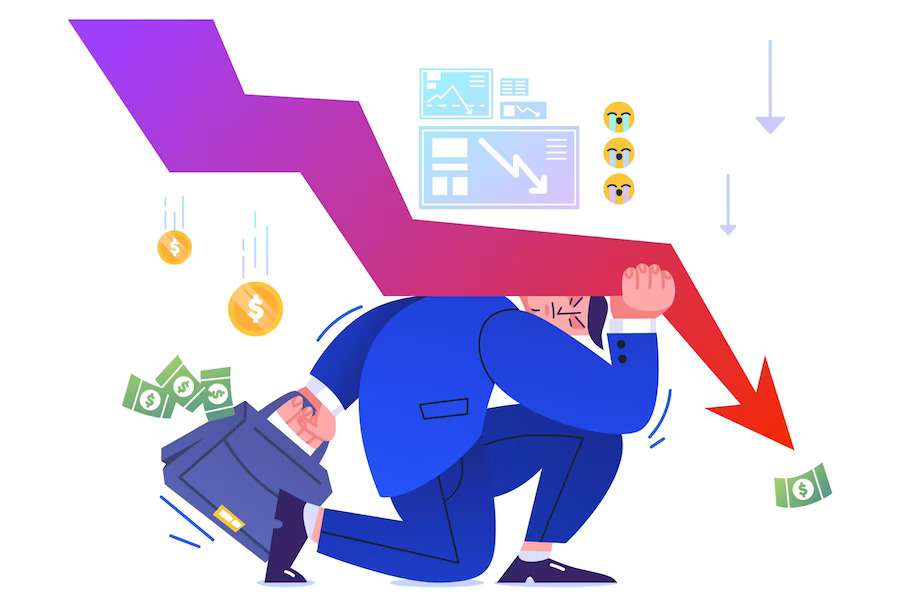blog
How Breaking News Impacts Society and Decision-Making
Breaking news, often defined as news that is happening right now or very recently occurred, plays a significant role in modern society. The rapid pace at which breaking news is disseminated, especially with the advent of digital media and social platforms, has created an environment where events unfold in real-time and individuals have almost immediate access to information. The speed and scope at which breaking news spreads can have profound impacts on both society and individual decision-making, influencing everything from political outcomes to social behavior, economic trends, and even personal choices.
In this article, we will explore how breaking news affects society and decision-making, its role in shaping public opinion, the potential consequences of media sensationalism, and the broader implications for democracy and individual autonomy.
The Importance of Breaking News
Breaking news provides real-time updates on events that are unfolding or have just occurred. It is often delivered through television broadcasts, news websites, and social media platforms. The urgency and immediacy of breaking news make it a powerful tool for informing the public and shaping the narrative surrounding important events. From natural disasters and political crises to major economic shifts or viral health outbreaks, breaking news offers a way for individuals to stay informed about critical happenings in their communities, countries, and the world.
Breaking news serves several key functions:
1. Immediate Awareness
Breaking news informs the public about urgent or significant events, often affecting public safety or national security. This can include everything from natural disasters (e.g., earthquakes, hurricanes) to human-made events (e.g., terrorist attacks, political unrest). The immediacy of breaking news allows the public to respond appropriately and take necessary actions, whether that means evacuating an area, voting on a national issue, or adjusting their daily activities.

2. Shaping Public Opinion
As breaking news spreads quickly, it has the power to shape public opinion in real time. People’s attitudes toward social, political, and economic issues are often influenced by how breaking news is reported and interpreted by media outlets. Media framing and the way events are presented can guide public perceptions, attitudes, and even the discourse surrounding an issue.
3. Influencing Decision-Making
Breaking news also directly affects decision-making, both on an individual and societal level. From a political standpoint, breaking news can influence voter behavior during elections, shape policy decisions, and even determine the outcome of critical events like international conflicts. On a personal level, breaking news can prompt individuals to make informed decisions about their health, finances, safety, or even their social actions, such as joining protests or supporting particular causes.
The Impact of Breaking News on Society
Breaking news has wide-reaching consequences for society, shaping not only individual behavior but also influencing the collective mindset. Here are some of the most significant ways that breaking news impacts society:
1. Political and Social Movements
Breaking news can fuel political and social movements by quickly alerting the public to injustices, human rights violations, or policy changes. For example, breaking news coverage of police brutality or a political scandal can spark widespread public outcry, leading to protests, demonstrations, or calls for governmental reform. The immediacy of breaking news on social media platforms like Twitter and Instagram further accelerates the organization of movements, with hashtags and live-streamed events becoming tools for mobilizing supporters.
Social media, in particular, has increased the power of breaking news in driving political activism and public discourse. Hashtags like #BlackLivesMatter, #MeToo, and #ArabSpring gained traction through breaking news coverage and became central to global movements. The speed at which information spreads on social media platforms can make breaking news a catalyst for societal change.
2. Public Sentiment and Anxiety
The constant stream of breaking news, especially in times of crisis, can have a profound psychological impact on society. For instance, widespread coverage of a natural disaster, terrorist attack, or public health emergency can contribute to heightened public anxiety, fear, and uncertainty. While breaking news alerts may provide crucial updates, they can also lead to an overload of information, contributing to a state of crisis fatigue or desensitization.
Additionally, sensationalized or graphic breaking news reports can perpetuate fear, leading to a distorted sense of reality, especially when these events are not representative of everyday life. This phenomenon, often referred to as “mean world syndrome,” suggests that heavy exposure to news about violence or crime can make people feel that the world is more dangerous than it actually is.
3. Influence on Consumer Behavior
Breaking news also affects consumer behavior, especially in response to economic shifts, product recalls, or public health updates. For instance, breaking news about an economic downturn or stock market crash can trigger panic buying or sell-offs, affecting market stability. Similarly, breaking news about a food safety issue or a public health warning can cause a surge in consumer actions, such as stockpiling or changing buying habits.
Retailers, investors, and businesses closely monitor breaking news to adjust their strategies and responses to consumer sentiment. In some cases, breaking news can also lead to sudden shifts in demand, such as a rush to purchase certain products (e.g., hand sanitizers during the COVID-19 pandemic), or a decline in others.
4. Changes in Public Policy
In democratic societies, breaking news often prompts immediate action from government bodies and public institutions. For example, breaking news regarding a major natural disaster can lead to the rapid mobilization of emergency responders and the allocation of government resources. Similarly, breaking news about a scandal or corruption case can result in immediate political responses, such as investigations, resignations, or calls for legislative changes.
Politicians and policymakers often use breaking news to gauge public sentiment, and media coverage of urgent events can shape how politicians address societal issues. During election periods, breaking news—whether it’s about a candidate’s scandal or a significant political event—can influence voter behavior and outcomes.
5. Impact on Media Consumption Habits
The way people consume news has changed drastically with the rise of digital media. News outlets now report breaking news across multiple platforms in real-time, from television to social media to websites. Social media, in particular, has transformed the dissemination of breaking news, with platforms like Twitter, Facebook, and YouTube providing instant updates and user-generated content.
This shift has led to a more fragmented media landscape, with individuals consuming news from a wide variety of sources, many of which are often not subject to the same journalistic standards as traditional outlets. The rapid spread of information can lead to misinformation or “fake news,” as reports are shared before they have been properly verified. This shift also means that breaking news is often consumed in bite-sized chunks, reducing the depth of information people may receive and potentially influencing how they perceive the issue at hand.
Breaking News and Decision-Making
The immediacy of breaking news has a profound effect on decision-making, both on an individual and collective level. The speed at which news is reported, particularly on social media, can influence decisions in several ways:
1. Crisis Management and Public Response
In the context of emergency situations, breaking news is essential for helping the public make informed decisions. Whether it’s evacuating from a natural disaster, following government safety guidelines during a pandemic, or responding to a national security threat, breaking news informs individuals on how to react quickly and safely. The ability to access up-to-the-minute updates can help people navigate crises more effectively, making real-time decisions that protect their well-being.
In the case of public health emergencies, such as the COVID-19 pandemic, breaking news has played a central role in shaping decision-making at both the personal and societal levels. Governments and health agencies rely on breaking news to disseminate important health updates, while individuals use news alerts to make decisions about their daily lives, including whether to travel, work, or social distance.

2. Political Decision-Making
Breaking news has a direct impact on political decision-making, particularly during times of crisis or national debate. Media outlets often act as the intermediary between government officials and the public, shaping the policy decisions of leaders. For instance, breaking news about a terrorist attack or military conflict can prompt immediate political responses, from diplomatic actions to military interventions.
During elections, breaking news can shape voters’ perceptions of candidates, influencing their decisions at the ballot box. Whether it’s a scandal, a policy announcement, or a political gaffe, breaking news can significantly alter the trajectory of an election campaign and the decisions of undecided voters.
3. Influence on Personal Choices
On a more personal level, breaking news impacts individual decision-making in various ways. For example, breaking news about a new health trend, financial opportunity, or technological innovation can prompt individuals to change their behavior or adopt new practices. The fast-paced nature of breaking news encourages people to make snap decisions, whether it’s investing in the stock market or changing lifestyle habits based on the latest health news.
At times, this can lead to overreaction or poor decision-making, as people may act on incomplete or inaccurate information. In today’s media landscape, where misinformation can spread rapidly, making decisions based on breaking news can sometimes result in unintended consequences, such as panic buying, premature conclusions, or faulty judgments.
The Future of Breaking News
As technology continues to evolve, the way breaking news is reported and consumed will likely continue to change. Innovations in artificial intelligence (AI), data analytics, and machine learning are already enabling faster reporting and more personalized news delivery. However, the increasing speed at which news is disseminated also raises concerns about the accuracy and reliability of information.
Moreover, the spread of breaking news via social media platforms, while beneficial in providing real-time updates, also raises issues regarding misinformation, sensationalism, and bias. The future of breaking news will require a balance between speed, accuracy, and accountability in journalism to ensure that society remains well-informed and capable of making thoughtful decisions.
Conclusion
Breaking news plays an essential role in shaping society and decision-making. Its impact is far-reaching, influencing public opinion, political outcomes, consumer behavior, and personal choices. As news consumption habits continue to evolve in the digital age, it is crucial for journalists, media outlets, and consumers to be mindful of the power that breaking news holds in shaping perceptions and actions.
In a world where news is delivered in real-time, understanding the psychological, political, and social implications of breaking news is more important than ever. By navigating breaking news responsibly, society can better harness its power to inform, engage, and make better decisions for the future.

